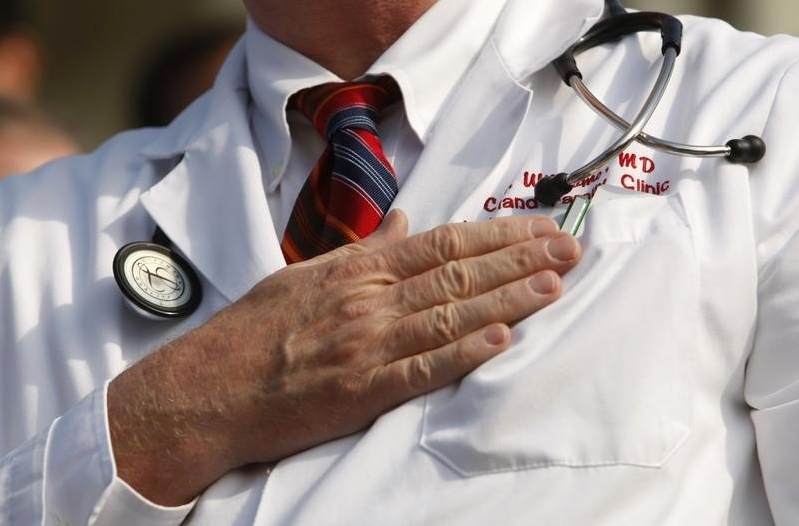
Lowering blood pressure below a commonly used target dramatically reduced heart failure and risk of death in adults aged 50 and older in a large U.S. government-sponsored study, results that could lead to a change in treatment guidelines and medical practice.
The data presented on Monday had some potentially troubling side effects that researchers said need further analysis, but they felt the benefits outweighed the risk.
"I think this is a big deal," said Dr. Marc Pfeffer of Brigham and Women's Hospital in Boston, who critiqued the study at an American Heart Association scientific meeting in Orlando, Florida.
Treatment guidelines should be changed accordingly, he said. "If there is a problem with an individual patient, you can always back off."
The scheduled five-year study of more than 9,300 patients with hypertension was stopped almost two years early after independent monitors saw a clear benefit on mortality and other risk factors.
Preliminary results comparing patients whose blood pressure was lowered to below 120 versus those with a target of under 140 were announced in September, a month after the study was halted. More detailed data unveiled at the AHA meeting showed additional benefits of more intensive lowering of systolic pressure, the top number in a blood pressure reading.
Blood pressure of 140 over 90 has been a commonly used target, but a lack of consensus was a prime reason for conducting the trial.
Heart failure, a leading cause of hospitalizations, was reduced by 38 percent, and death from heart-related causes was 43 percent lower in the more aggressively treated patients, researchers found.
Previously reported findings showed reducing blood pressure to below 120 cut the combined rate of heart attacks, strokes and heart failure by almost a third, and the risk of death from any cause by nearly a quarter.
But the more intensive treatment group had 1-2 percent higher rates of adverse side effects, including hypotension, or unusually low blood pressure, fainting, electrolyte abnormalities and, perhaps most troubling, kidney damage or failure.
The rate of kidney problems was 4.1 percent in the lower blood pressure group versus 2.5 percent for the under 140 group.
Patients over age 75 appeared to have no additional problems tolerating more intensive treatment, which researchers found comforting.
People who had a prior stroke or diabetes were excluded from the study, but 30 percent had chronic kidney disease. High blood pressure is considered a leading risk factor for heart disease, kidney failure and other health problems.
DEBATE ON GUIDELINES LIKELY
The results are sure to set off a lively debate over whether guidelines for treating hypertension should be changed to the lower target.
"The magnitude of benefit has been so clearly demonstrated that we do believe the evidence from the Sprint trial should be considered when providers and the guidelines committees decide what should be the optimal blood pressure target," said Dr. Jackson Wright, lead author of a New England Journal of Medicine article, on the study.
Researchers are still analyzing the data to see if more intensive blood pressure lowering affects cognitive decline one way or the other, or has an impact on long-term kidney disease.
The lower blood pressure was achieved by adding one additional medicine, for an average of three medications, from a variety of classes available as inexpensive generic drugs.
The classes include angiotensin receptor blockers, or ARBs, such as Novartis' Diovan, calcium channel blockers, like Pfizer's Norvasc, ACE inhibitors, including Pfizer's Altace, and diuretics, such as Merck's Hyzaar.







